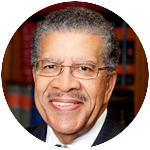
Gerald T. Davis
Over the years, I’ve cherished the opportunity to send a holiday message during the High Holy Days to a small, close group of Jewish friends, like brothers and a sister to me. This time, some of them suggested that I share my message publicly through CatholicPhilly and the Jewish Exponent, the newspaper for the local Jewish community. I welcome the invitation.
In the middle of constant turmoil both here and abroad, I wish you Shanah Tovah, a peaceful new year (Hebrew Year 5786). But amid all this turmoil, I take great comfort in the words of St. Paul: “Hope does not disappoint.” Regardless of our religious practices, we hold onto hope.
This year the High Holy Days began Sept. 22 with Rosh Hashanah and ended Oct. 2 with Yom Kippur, the Day of Atonement, the holiest day in the Hebrew calendar. These “10 Days of Awe” provide the faithful with an excellent opportunity for growth.
Rosh Hashanah begins a time for reflection, repentance, prayer, and it seems to me, intentional recommitment to doing better.
Yom Kippur further emphasizes that through prayer and supplication we can improve ourselves, and we — Jew and Gentile alike — must put forth the effort necessary to do so.
As a Christian, we all should have 10 Days of Awe: to pause; to think; to look inward; to ask the hard questions just between God and us, with no need for an intermediary, whether that be a rabbi, priest, imam, minister, or prophet of the Church of Latter-Day Saints. Just you and God.
No faith tradition can ever do enough self-reflection. On Yom Kippur, we atone; may we on that day be at one.
I understand that the most poignant prayer on Yom Kippur begins with the determination of who will live and who will die, as recorded in the Book of Life. It is decided whether they will perish by fire or water, die in a timely manner or an untimely one.
A constant in the spirit of Rosh Hashanah is that we reach out beyond ourselves to help others and especially the most needy among us. Mother Teresa, now revered as St. Teresa of Calcutta, lived this principle.
Rabbinical tradition tells us that the one way we can help ensure that our names are inscribed in the Book of Life is to give to others in the community. Giving is particularly important during this time.
The 10-day period of the High Holy Days presents an opportunity for all people of goodwill — from any faith tradition — to contemplate a question posed by Admiral James Stockdale, a one-time U.S. vice-presidential candidate. Some of us can readily recall Stockdale’s words during a debate: “Who am I and why am I here?” We laughed. Though simple, it’s a profound question.
Added to that, Mark Twain said there are two important days in your life, “The day you were born and the day you find out why.” Yom Kippur reminds us to reflect on our “why.” Catholics call such reflection the examination of conscience.
To start this reflection, we must acknowledge that it’s not as much about ourselves as how we treat others. I’m reminded of this in a special way during this sacred time in the Hebrew calendar.
Sadly today, there’s too much viewing one another as “less than,” as persons possessing the fullness of human dignity. This results in a four-letter word, hate, or as I once heard it described, “the dislike of the unlike.” I recall Elie Wiesel’s dictum, “The opposite of hate is not love, it is indifference.”
The wisdom of this point was revealed this week when we learned that three people were killed and three hurt in an attack at synagogue in the United Kingdom. As it occurred on the Day of Atonement, it reminds us all to be outraged and not stay silent, which amplifies hatred. The Book of Genesis reminds us that we are our brother’s and sister’s keeper.
Today there’s too much ego, too many soundbites, and too much one-upmanship, and we can’t look only to leadership to change the alarming trajectory that our country is on right now. We all must be the leaders we need to make it happen.
The scriptural readings on the Sunday before Rosh Hashanah challenged us to be honest about ourselves, others, and God. As the 10 Days of Awe calls you, our Jewish brothers and sisters, to reflect on these things, I too embrace these 10 days.
In the parish bulletin on that Sunday, Sept. 21, our inspiring pastor asked, “How are we coping with the political rhetoric, hatred, and violence that seem to be invading our culture? Do we accept that our identity and dignity are rooted in our Creator, God, who formed us in His own image? Or do we reduce our identity to a political party, a social organization, or a self-centered point of view?”
As we begin a glorious new year, I humbly ask all of us to reflect on our “why,” and what that requires of each of us. Then let’s go do it.
May your name be inscribed in the Book of Life by your continuous service to others.
***
Gerald Davis is a member of the Archbishop’s Commission on Racial Healing and a parishioner in the Archdiocese of Philadelphia.
PREVIOUS: Portugal Gives Glimpse of a Reviving Church
NEXT: Pope Francis’ Decade-Old Lesson: Detainees Are Our Family


Share this story